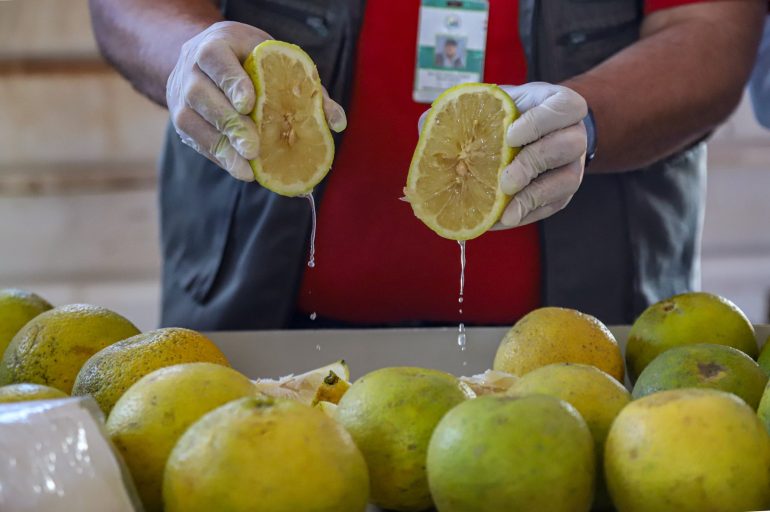Paraguay dispatched its maiden grapefruit export to Argentina this week, sending 28.5 tonnes of fresh fruit across the border to Formosa Province. Valued at US$5,400, the consignment required months of preparation to meet Argentina’s plant health requirements, including washing, waxing and careful packaging.
Doubling farm-gate prices
For participating farmers, the grapefruit export delivered immediate benefits. Producers received Gs. 800-900 per kilogram, nearly twice the local market price. Pastor Soria, head of Paraguay’s plant health service, Senave, described this as crucial for encouraging quality production.
“Until now, only large companies exported pomelo as juice or concentrate,” Soria explained. “This creates real incentives for small farmers to reinvest in their crops.”
Testing ground for larger volumes
Argentine importers requested this trial shipment to assess quality before placing larger orders. If successful, demand could reach 900 tonnes, more than thirty times the current volume. Cristian Elías, the Argentine businessman who initiated contact, helped bridge the gap between the two countries.
Agriculture Minister Carlos Giménez emphasised how market access enables production planning. “Farmers can now plant citrus knowing they have buyers lined up,” he said during the ceremony at Boreal Puerto Seco.
Grapefruit export route
Wednesday’s departure ceremony brought together government officials and industry representatives, highlighting the public-private cooperation behind the achievement. The shipment travelled via the Falcón-Clorinda route, with Frutibras Import-Export handling logistics. The cargo, packed in 50 industrial bags of 570 kilograms each, will supply a juice processing plant.
For the eight Itapúa farmers involved, this week’s shipment is the result of years of dedicated cultivation. Their success could encourage broader participation as Paraguay positions itself in South American fresh fruit markets. Initiatives like these, along with the Zero Hunger Programme, reflect Paraguay’s commitment to strengthening local agriculture and food security by empowering small-scale producers.
The achievement demonstrates how smaller nations can find niches in regional trade through a focus on quality and proper preparation. Paraguay aims to shift from commodity dependence towards fresh produce exports, a transition requiring sustained investment in standards and farmer support.
Avocados, mangoes, and canola to Chile next?
The grapefruit breakthrough continues Paraguay’s agricultural diversification. Officials are now working to introduce avocados, mangoes, and canola to Chilean markets, with Senave registering 70 hectares of avocado cultivation across three departments. The strategy targets nearby markets including Brazil, Uruguay, and Chile. Paraguay is implementing a National Fruit Fly Control Programme to address export barriers, whilst building on its existing banana export authorisation to Chile.


